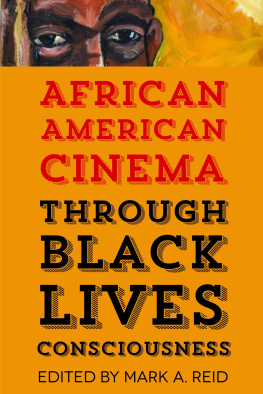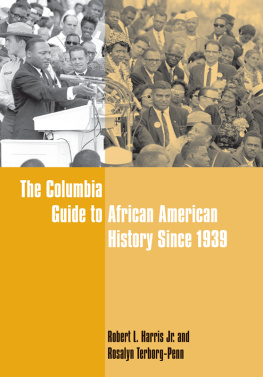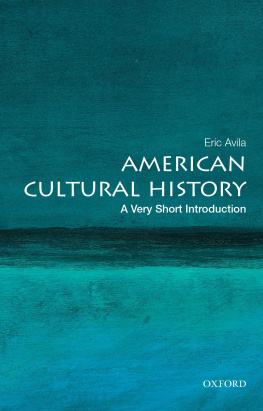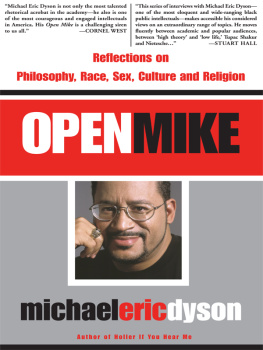beyondBLACKFACE
THIS BOOK WAS PUBLISHED WITH THE ASSISTANCE OF THE
H. Eugene and Lillian Youngs Lehman Fund of the University of North Carolina Press.
A complete list of books published in the Lehman Series appears at the end of the book.
2011 The University of North Carolina Press
All rights reserved. Manufactured in the United States of America.
Set in TheSerif and Miller types by Tseng Information Systems, Inc.
The paper in this book meets the guidelines for permanence and durability of the Committee on Production Guidelines for Book Longevity of the Council on Library Resources. The University of North Carolina Press has been a member of the Green Press Initiative since 2003.
Library of Congress Cataloging-in-Publication Data
Beyond blackface : African Americans and the creation of American popular culture, 18901930 / edited by W. Fitzhugh Brundage.
p. cm.
Includes bibliographical references and index.
ISBN 978-0-8078-3462-6 (cloth : alk. paper) ISBN 978-0-8078-7184-3 (pbk. : alk. paper)
1. African Americans in mass media. 2. African Americans in popular culture. 3. Mass
mediaUnited StatesHistory. 4. African AmericansRace identityHistory. I. Brundage,
W. Fitzhugh (William Fitzhugh), 1959
P 94.5.A 372U 536 2011
305.896073009041dc22 2010053996
cloth 15 14 13 12 11 5 4 3 2 1 paper 15 14 13 12 11 5 4 3 2 1
Portions of Clare Corbould,At the Feet of Dessalines: Performing Haitis Revolution during the New Negro Renaissance, have been reprinted by permission of the publisher fromHaiti, a Stepping-Stone to Africa, in Becoming African Americans: Black Public Life in Harlem, 19191939 , by Clare Corbould (Cambridge, Mass.: Harvard University Press,
2009 by the President and Fellows of Harvard College), 16890.
Contents
first coda
Representations of Blackness in Nineteenth-Century Culture
second coda
The Marketplace for Black Performance
third coda
The Meanings and Uses of Popular Culture
fourth coda
Spectacle, Celebrity, and the Black Body
Acknowledgments
During the gestation of this volume I have acquired an uncommonly long list of debts. To the contributors, I am grateful for their creativity, generosity, and patience. It has been a pleasure to work with scholars whose work I admire greatly. This volume was also made possible through the generosity of the community at the University of North Carolina. The conference that anchored and enriched this volume was made possible through the generous support of the Center for the Study of the American South, the Office of the Associate Dean of Social Sciences, the Diversity Initiative Fund, the University Program in Cultural Studies, the Associate Provost for International Affairs, the Department of History, the Department of English, the Curriculum in American Studies, the Institute for the Arts and Humanities, the Sonja Haynes Stone Center for Black Culture and History, the Department of Dramatic Arts, and the University of North Carolina Press. More specifically, special thanks are due for Violet Anderson, Barbara Call, McKay Coble, Peter Coclanis, Lisa Eveleigh, Herb Garman, Karen Gil, Hilary Green, Larry Grossberg, Joseph Jordan, Joy Kasson, Lloyd Kramer, Joyce Loftin, John McGowan, Cookie Newsom, Nancy Schoonmaker, David Silkenat, Olympia Snowe, and Harry Watson.
I also am indebted to the members of the Chapel Hill academic community who contributed to the conference: Matt Harper, Trudier Harris, Kenneth Janken, Greg Kaliss, John Kasson, Mark Katz, Laurie Maffly-Kipp, Charlene Regester, and Lyneise Williams.
At the University of North Carolina Press, Chuck Grench has been tolerant and patient beyond all explanation. One of the pleasures of being a member of this community has been working closely with Chuck and the rest of the UNC Press staff.
Finally, I eagerly await Armisteads book(s). And no words are adequate to express my gratitude to and love for Susan.
Working in the Kingdom of Culture
African Americans and American Popular Culture, 18901930
W. FITZHUGH BRUNDAGE
Ethel Williamss and Johnny Peterss exuberant vaudeville interpretation of the Texas Tommy dance, Louis Chauvins virtuoso performances of piano rags, Bert Williamss winsome pantomime in the Ziegfeld Follies, Oscar Micheauxs brash experiments in cinema, and Hubert Julians daredevil stunts in and over Jazz Age Harlem. These are a few milestones of African American artistry and cultural innovation at the dawn of the twentieth century. Virtually every facet of popular culture in the United States displayed black influences. Black facesAunt Jemima, Uncle Ben, and other iconsgraced the most popular mass-produced products that filled American pantries. African Americans had always been presenteven when unacknowledgedin American culture and life, but now their conspicuous presence as both subjects and innovators of popular culture was unmistakable and unprecedented.
The rise of blacks in American mass culture between 1890 and 1930 coincided with the heyday of what historian David Nasaw has described as the era of public amusements. A proliferation of commercialized mass entertainment, ranging from phonograph parlors and silent-film palaces to professional sports events and dancehalls, transformed American leisure. In huge numbers, Americans of all classes and backgrounds sought out these and other forms of commercial leisure. By exploiting the eras dizzying technological innovations, mass-culture entrepreneurs produced accessible and alluring forms of entertainment that accelerated the nations emerging consumer economy.1
This new prominence of mass entertainment, and of blacks in it, accentuated contradictions in American attitudes about both race and culture. At centurys end, white Americans engaged in strenuous debate over their Negro problem. The Civil War had left unresolved the status of African Americans as citizens. White Americans recognized that blacks would no longer be slaves, but few imagined a future in which blacks would attain equality with whites. Some self-proclaimed experts predicted that the laws of evolution doomed blacks to eventual extinction. Others awaited an inevitable race war during which whites would annihilate blacks. Perhaps most whites assumed that blacks were consigned by nature and tradition to inferiority for generations to come. Most speculations about the future of black Americans revealed the mixture of loathing, fear, envy, and curiosity that whites harbored toward African Americans.2
Evidence of whites fear and loathing of blacks was plentiful. At centurys end, legalized segregation swiftly expanded and racial discrimination intensified, circumscribing virtually every life choice of blacks, especially in the South, where the era of Jim Crow had dawned. An epidemic of lynchings, racial affrays, and riots against blacks underscored the proclivity of whites to employ violence to impose their will. And the figure of the depraved black criminal assumed a prominence in newspapers, fiction, plays, songs, and early films far out of proportion to his actual numbers. With good cause, historians have referred to the era as the highest stage of white supremacy and the nadir of American race relations.3 Yet efforts to quarantine and demonize blacks failed to overcome either black resistance to their oppression or the fascination that black culture possessed for whites. Even while some whites professed revulsion and contempt for African Americans, others enthusiastically appropriated and consumed black culture.







